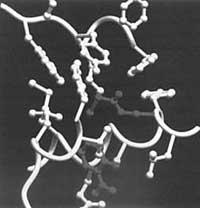Aspirin of the following century

Undoubtedly, one of the most commonly used drugs in today's society is aspirin. Whatever the disease, many people believe it can be solved with aspirin. Aspirin is also known to have side effects. Aware of this, the University of Chicago is looking for a drug with the same degree of efficacy of aspirin and that does not leave secondary sequelae; everything points to being found ever closer to a drug that could be the panacea of the following century.
The first step of research has been to clarify the functioning of aspirin. But it has not been a simple task. Researchers have found that aspirin launches an enzyme called PGSH-1 and PGSH-2, from which they start to be able to figure out the advantages and damage of this drug. Only provisional results have been published, according to which the enzyme PGSH-1 would be the cause of adverse side effects and the enzyme PGSH-2 is the beneficial effect that we have all thanked on more than one occasion. However, the researchers wanted to realize that they are at the beginning of the research, among other things, so that in the laboratory producer of aspirin the enormous headache is not extended.





